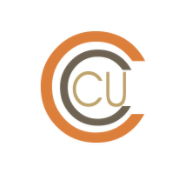Learn how to fight the scams
Today’s criminals are more likely to use a fake email to steal your credit union account number than they are to pick a lock and take your TV and jewelry. The good news is that there are a lot of effective ways to fight back against scam artists and data phishers.
PHISHING COMES IN MANY FORMS
- E-Mail “Phishing”: Phishing is a scam to steal valuable information such as credit card and Social Security numbers, user IDs, and passwords. In phishing, an official-looking e-mail is sent pretending to be from a bank, credit union or retail
- Telephone “Vishing”: Vishing (Voice phishing) is the voice counterpart to phishing.Instead of being directed by e-mail to a website, an e-mail message asks the user to make a telephone call. The call triggers a voice response system which asks for the user’s personal or financial information.
- Text Message “Smishing”: Smishing (SMS Phishing) is the mobile phone counterpart to phishing. A text message is sent to the user’s cell phone with some ploy to click on a link and send personal information through text messages.
- Mail “Letter Phishing”: This scam is where a letter is sent through the mail to individuals asking them to respond by calling a phone number. The letter advises the individual that they must respond for their own protection.
FIGHT BACK!
- Never click on the link provided in an e-mail you believe may be fraudulent. It may also contain a virus that can contaminate your computer. Go the company’s website directly, instead.
- Review account statements regularly to ensure all charges and transactions are correct.
- If you never entered the lottery, you can’t win. You can’t win a prize in a lottery if you didn’t buy a lottery ticket.
- Look at the sender’s e-mail address. Most scammers use e-mail accounts such as Yahoo, Hotmail, MSN, etc.
- People fall victim to these scams primarily because they are unaware or the offer seems so real. Only your non-response to this activity will help make it disappear.
- Spread the word and tell everyone you know about these clever scams and how not to fall victim to them.
- If you have any questions about phishing, please call CCCU at 1 868 662 9270.
HELPFUL RESOURCES
| Tools |
| Services |


